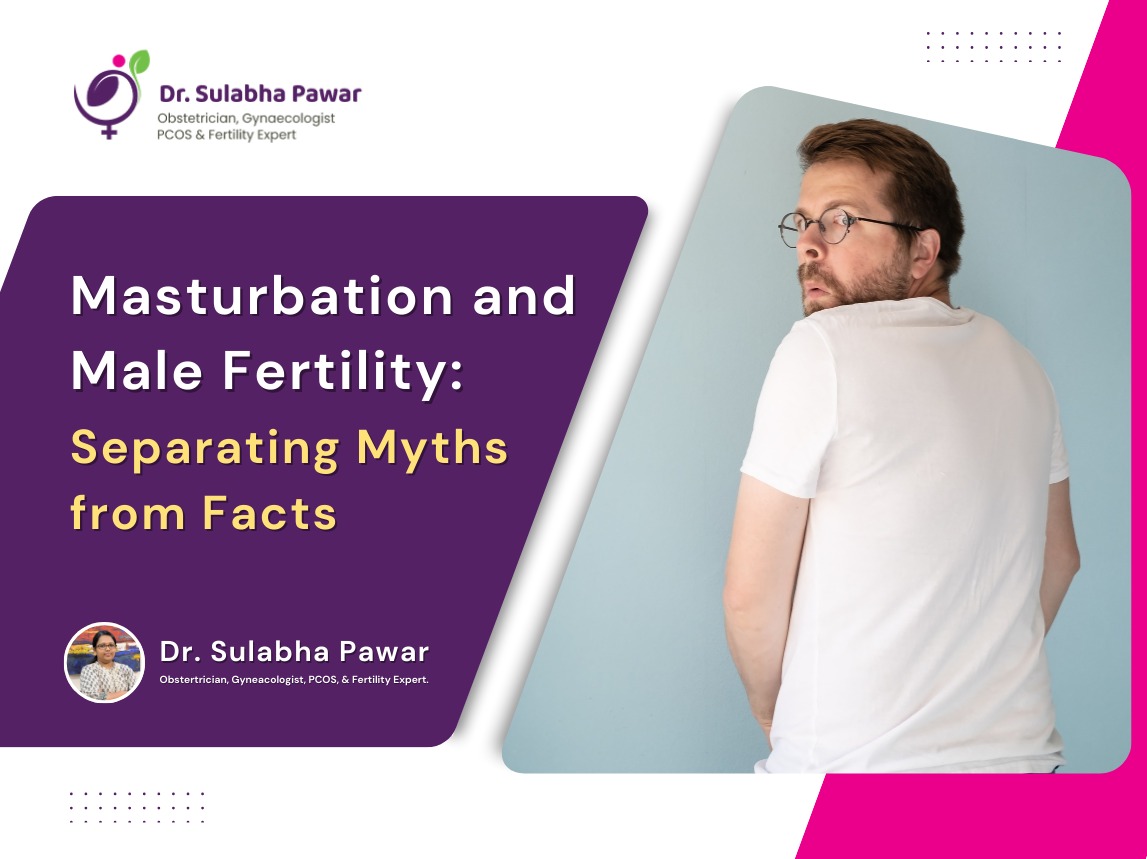Masturbation and Male Fertility: Separating Myths from Facts - Dr. Sulabha Pawar
Introduction
- Opening Discussion: Address the prevalence of myths around male fertility and masturbation, why the topic is sensitive, and its relevance to understanding male reproductive health.
- Brief Overview: State that masturbation does not cause long-term reductions in sperm count or fertility, backed by general findings.
Understanding Sperm Production and Health
- How Sperm is Produced: Explain the basics of spermatogenesis and how the male body maintains a balance in sperm production.
- Factors Affecting Sperm Health: List aspects that influence sperm health, such as genetics, lifestyle, and overall health. Emphasize that masturbation is not one of these long-term factors.
Exploring Common Myths and Concerns
- Myth 1: Masturbation Lowers Sperm Count
- Explain how ejaculation, even if frequent, doesn’t deplete sperm count permanently.
- Discuss that sperm levels replenish naturally and masturbation doesn’t exhaust resources.
- Myth 2: Frequent Ejaculation and Quality of Sperm
- Talk about the relationship between frequency of ejaculation and temporary fluctuations in sperm count without lasting effects.
- Myth 3: Masturbation Leads to Low Testosterone
- Clarify that masturbation doesn’t deplete testosterone or affect hormone levels substantially in the long term.
When Masturbation Might Affect Sperm Count (Temporarily)
- Short-Term Changes in Sperm Count: Explain that with frequent ejaculation, sperm count may decrease temporarily but returns to normal with rest.
- How Often is “Too Often”: Discuss how individual frequency varies and that moderate masturbation has no negative impact on fertility.
Factors That Do Affect Sperm Count
- Health Conditions: Such as varicocele, infections, hormonal imbalances.
- Lifestyle Factors: Smoking, alcohol, drugs, diet, exercise, and stress.
- Environmental Factors: Heat, exposure to chemicals, and radiation.
Healthy Habits to Improve Sperm Health
- Nutrition and Supplements: Foods and supplements like zinc, folate, and antioxidants that benefit sperm health.
- Exercise and Sleep: Importance of a balanced lifestyle, including exercise and adequate sleep.
- Avoiding Harmful Substances: Smoking, excessive alcohol, and other recreational drugs’ effects on fertility.
Psychological and Emotional Aspects
- How Anxiety About Fertility Impacts Sexual Health: Discuss how stress and anxiety about fertility can impact sexual performance and enjoyment.
- Tips for Coping with Fertility Concerns: Recommend healthy coping strategies, like discussing concerns with a partner, therapy, or consulting a fertility specialist.
Consultation with a Specialist
- When to Seek Professional Help: Indicators for men to see a doctor about sperm health.
- What to Expect: Describe the diagnostic process for evaluating sperm health and potential treatments.
Conclusion
- Reinforcing Key Takeaways: Masturbation does not affect sperm count or fertility in a long-term or significant way.
- Encouragement for a Balanced View: Promote a balanced approach to sexual health and dispelling myths for better reproductive well-being.




